May 15, 2013
After N and A returned from
their horseback ride, we gathered all of our things and lugged them into the
center of Kochkor, where our first stop was a local café – a different one from
the place we had visited the day before. In contrast to the café of the
previous day, this place was excellent. Not only did they have everything that
was on their menu, but the service was excellent and the food was delicious. By
that time my stomach had settled to the point that I was actually able to eat a
bowl of borscht.
After lunch, we walked over
to the taxi area and first attempted to arrange a taxi to Kalmak Ashu, the
small village in the Chong Kemin valley which was our next destination.
Unfortunately, as the taxi drivers knew that they wouldn’t be able to get a
return fare from Kalmak Ashu to Kochkor, they openly laughed at us and were
only willing to drive us there for absurd sums of money. Luckily Tom (the
fellow we were meeting in Kalmak Ashu) had his own car and had said that if
need be he could meet us in Bystrovka (AKA Kemin), a village located on the
main drag between Issyk Kul and Bishkek – and a place that it was a lot easier to
arrange transport to. We ended up arranging space in a shared taxi to
Bystrovka, and we met Tom at the base of the statue of Shabdan Batyr that
dominates the village.
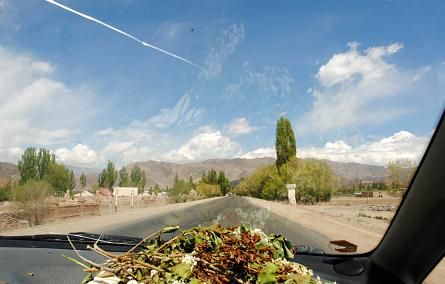
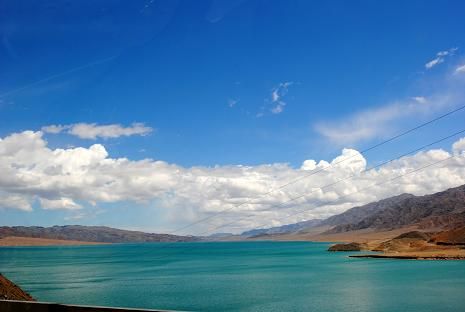
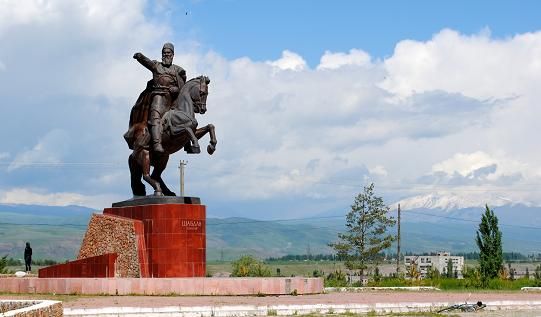
To see the complete set of photos from the drive from Kochkor to Kemin, CLICK HERE.
Tom is the Program Coordinator for the Bilimkana Foundation, a newly established educational foundation which intends to set up thirty, high-quality private-but-affordable schools offering Russian and English education in rural areas of Kyrgyzstan. Nowadays in most rural areas of the country, education is available only in Kyrgyz. While there is nothing whatsoever wrong with speaking or studying Kyrgyz, this leaves children from rural areas at a disadvantage as if you want to be successful in Kyrgyzstan you still really need to know how to speak/read/write in Russian, and to be successful in former Soviet Central Asia, both Russian and English are necessities. Bilimkana is working to level the playing field somewhat for children from rural areas who might otherwise have no chance to learn either Russian or English.
As working for Bilimkana is
definitely something that I am interested in doing once I’ve completed my MA
TESOL, I had emailed Tom prior to leaving the US in order to express my
interest in the program and to suggest that he and I meet up while I was in
Kyrgyzstan over the summer. His reply had been to invite all four of us to stay
in the Ashu Guesthouse in Kalmak Ashu so that we could see the very first
Bilimkana school, meet the students and the teachers, and explore the Chong
Kemin Valley. The entire experience was phenomenal. Tom drove us to the
guesthouse, a really fantastic and comfortable place, nestled in the valley,
surrounded by flowers and cultivated fields, and ringed by snow-capped
mountains.
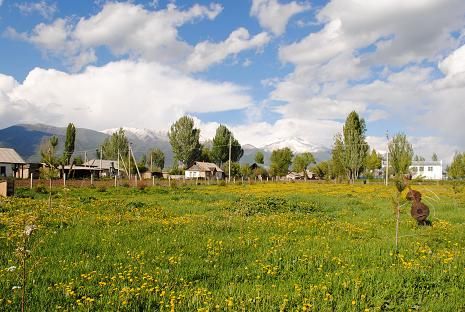
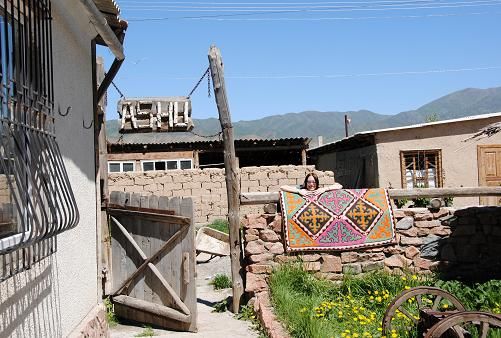
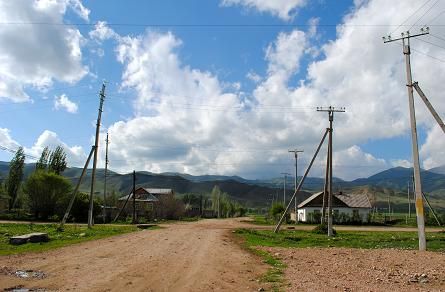
We dumped our bags in our
rooms, had some tea with jam and honey, then went for a quick tour of the
school. The children study in the morning, and right now they only offer
classes to students grades K-2, although they are hoping to expand. English
classes are offered to both older kids and adults in the afternoon. We were able
to meet one of the teachers and several of the older students. The school itself was incredible – quality
construction and tons of resources, including a computer lab with internet
access and wifi. (Apparently the local schools do not offer computer lessons
either, whereas Bilimkana does.)
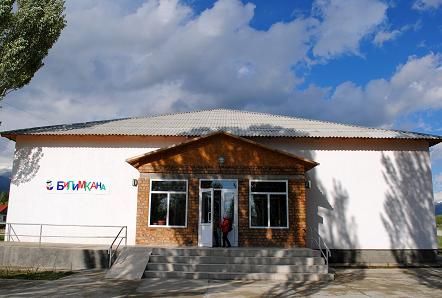
After a quick tour of the
school we decided to drive up the valley just to have a look around. After the
villages peter out, there’s simply a gorgeous valley with smatterings of
horse/cow/sheep farms here and there. Just outside of the last village we
picked up – of all things – a Russian hiker/trekker from Bishkek who was
hiking/camping her way around the valley. She was a very interesting woman – if
possibly a tad crazy. We drove her several kilometers up the valley to a dairy
farm where she arranged to spend the night. We then spent a good bit of time
taking photos of the river and the valley, at which point it was time to head
back to the guesthouse for dinner – which was delicious and quite expansive.
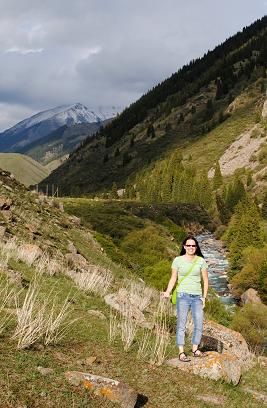
The following morning –
after yet another copious meal at the guesthouse, Tom took us back to the
school to meet the children and all of the other teachers. The place is really
quite marvelous, and all of the teachers and staff seemed wholly dedicated to
what they were doing. The kids were great. They were so happy, and a lovely
mixture of shy and excited to see us – and they were eager to practice what
little English they knew. It really was a wonderful place. We ate lunch with
the children… then returned to the guesthouse where even more lunch was waiting
for us. By 1:30pm we had managed to consume three large meals, which was a
little insane.
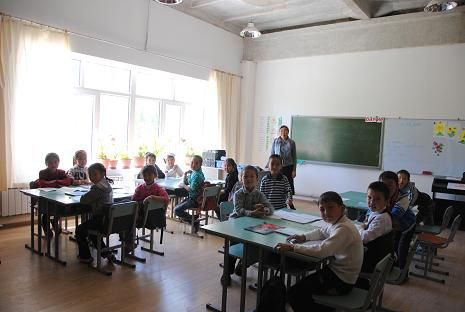
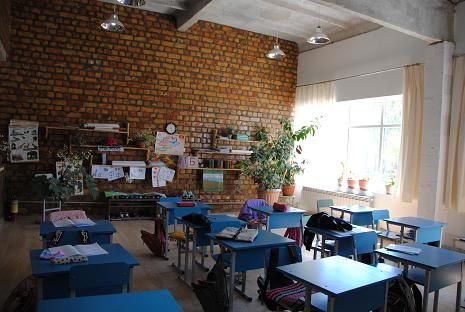
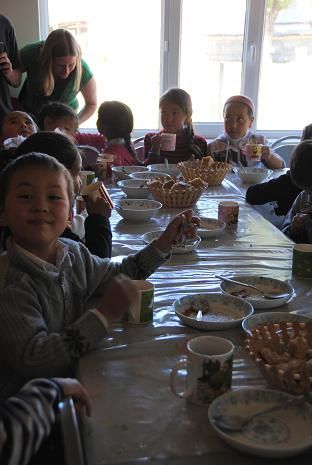
At that point Tom had to go
and teach, so we said our goodbyes coupled with many thanks for his
hospitality. We then decided to go for a hike in the few hours we had before
the last marshrutka of the day left Kalmak Ashu for Bishkek. We hiked up into
the foothills of the mountains to the south of Kalmak Ashu, explored a
cemetery, met an incredibly friendly horse, and took far too many photos of the
incredible views.
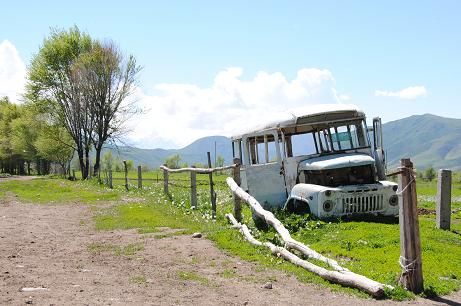
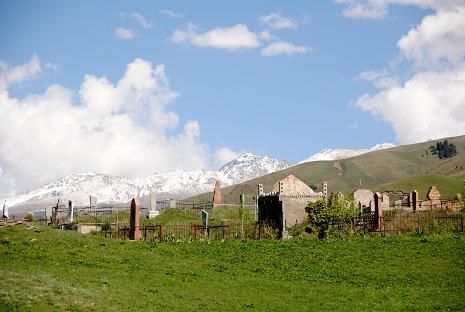
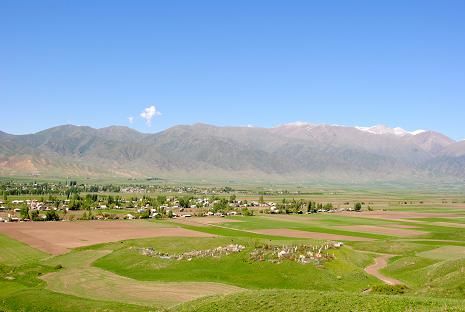
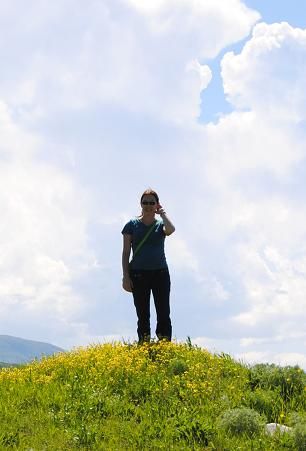
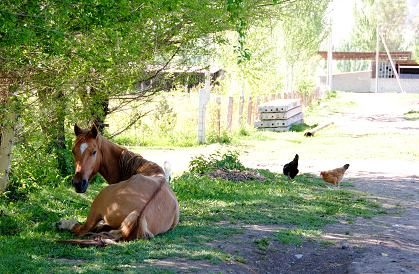
At about 5:15 we boarded the marshrutka to Bishkek. We
returned to the Sakura hostel, and I went straight to bed, having started to
feel a tad motion-sick in the marshrutka.
To see the complete set of photos from Chong Kemin, CLICK HERE.

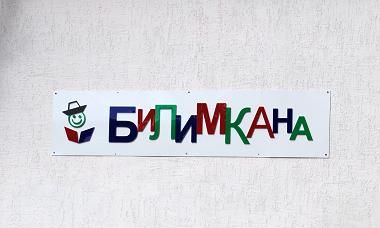
No comments:
Post a Comment